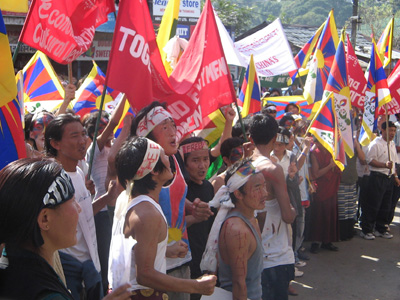Everyone wants to ‘protect the environment’. But what does it mean, this environment? Well. for most of us. the environment is somewhere out there. It’s the forests, the rivers and streams. It’s nature.
If we check the definition of the word environment we find that it does indeed refer to nature and natural resources. The dictionary defines environment as being ‘the natural world’. And for most of us nature is something we don’t have a lot to do with on a daily basis. We live in towns and cities, we work in shops and offices. In other words, we don’t usually have a personal connection to nature.
Without that personal connection, we can feel powerless when it comes to the environment: the problems are too big, too hard for us to think about. Besides, we have our families to take care of, we have a living to make or study to focus on.
But what if we look at the problem from a slightly different angle? The dictionary also tells us that environment is ‘the surroundings or conditions in which a person lives or operates’. In other words, our environment includes our homes, places of work, schools, streets and other public spaces. And it is in these areas that individuals do have some power to make changes, and to improve our environment.
His Holiness the Dalai Lama has said, ‘Ultimately, the decision to save the environment must come from the human heart’. He recognises that we don’t only live in the environment, but that we are part of the environment.
People are coming in ever increasing numbers to Dharamsala and Mcleod Ganj. Refugees continue to arrive from Tibet, and more and more westerners are attracted to the natural beauty of the area and to the wonderful lifestyle and good friends to be found here. This has resulted in ongoing and large scale development of the urban areas. This development is putting huge strains on the local environment. In particular the amount of garbage generated by this population growth is causing problems on many levels.
Garbage is ugly! Who wants to see piles of plastic, rotting food waste and other garbage all over our streets? Who wants to live with garbage at their front door? And if we want to attract more tourists and more tourist related investment, we need to show the world that we can be a clean haven from the sea of rubbish that is drowning many other parts of the coutnry and indeed the world.
Garbage is unhealthy! Leaving rubbish to rot in the streeet spreads disease and illness. It also encourages animals and vermin which add to the health risks for ourselves, our children and our visitors. And when the garbage gets into the water supply it not only clogs up the system, but once again creates serious health risks by polluting our drinking water.
So what can we do? Well, the problem has to be tackled by a mix of individual, government, education and local business initiatives. Banning plastic bags was a good move, but local government needs to do more. We need more garbage bins and more efficient collection services. The Municipal government is doing a reasonable job of clearing garbage from the central area of Mcloed Ganj twice a day, but this service needs to be extended to other parts of the town, including outlying areas. Also, government needs to get involved with recycling services to deal with the growing problem of plastic generated by packaging and water bottles.
There needs to be education on what we as individuals can do. This can be done at both school and community level. Check out the Clean Upper Dharamsala project through the Tibetan Welfare Office. Not only do they provide information on what we can do to improve our enviroment, they run a collection and recycling service which has had a huge impact on the environment in our town. We congratulate them for their hard work and they deserve our support.
Local traders and businesses will gain greatly by getting involved in cleaning up our streets. Keeping the areas around their shops and offices clean by disposing of their own rubbish responsibly, providing waste bins and recycling facilities in guest houses and restaurants, as well as assisting neighbours and other local initiatives, will increase business opportunities by making the town a more attractive place to live and work in, as well as to visit.
But what about those of us who are a little careless or unthinking when it comes to disposing of our garbage? As mentioned, education programs through schools and other organisations help. More signs in the street and in shops, as well as more rubbish bins, all act as reminders to us to be just that much more careful.
In addition, there needs to be a fair system of laws set up to ensure that all members of the community – including our visitors – contribute to its welfare, health and cleanliness. On the spot fines, compulsory community service or other measures will act as a deterrant to offenders and other members of the commmunity. But if they are to work, these laws need to be enforced.
Let’s give His Holiness the last word in this discussion. He has spoken often about the urgent need for us all to care more for our environment. In one talk he said, ‘This [the neeed to protect the environment], however, is not just a question of morality or ethics, but a question of our own survival. For this generation and for future generations, the environment is very important. If we exploit the environment in extreme ways, we will suffer, as will our future generations’.




 Print
Print Email
Email